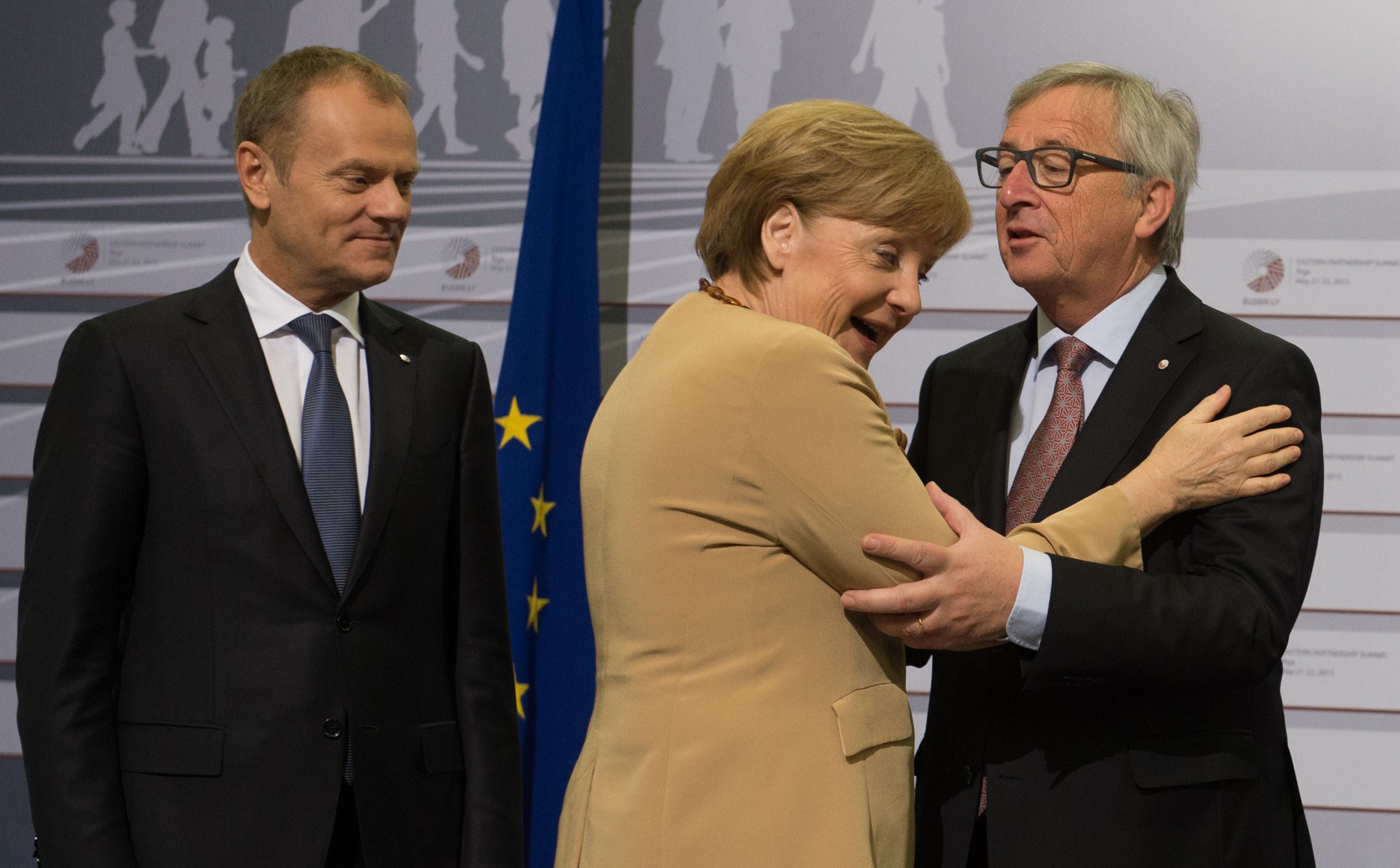Angela Merkel: The way we handle the refugee crisis will shape the EU's future
German Chancellor says Europe is far away from finding a solution to the humanitarian crisis engulfing the continent after marathon talks in Brussels

Your support helps us to tell the story
From reproductive rights to climate change to Big Tech, The Independent is on the ground when the story is developing. Whether it's investigating the financials of Elon Musk's pro-Trump PAC or producing our latest documentary, 'The A Word', which shines a light on the American women fighting for reproductive rights, we know how important it is to parse out the facts from the messaging.
At such a critical moment in US history, we need reporters on the ground. Your donation allows us to keep sending journalists to speak to both sides of the story.
The Independent is trusted by Americans across the entire political spectrum. And unlike many other quality news outlets, we choose not to lock Americans out of our reporting and analysis with paywalls. We believe quality journalism should be available to everyone, paid for by those who can afford it.
Your support makes all the difference.The way EU leaders handle the growing refugee crisis will shape Europe's future, Angela Merkel has said as she warned that a solution was far off.
After emergency talks between EU leaders in Brussels finished in the early hours of this morning, the German Chancellor told her European counterparts that the “selective relocation” system to share 120,000 refugees across the continent was only a “first step” but far from enough to solve the humanitarian crisis.
An estimated half a million refugees have fled to Europe this year due mainly to the instability in Syria but also fuelled by instability elsewhere in the Middle East and across North Africa, overwhelming EU leaders who remain bitterly divided over how to deal with the crisis.
But Donald Tusk, the European Council president, warned that the "greatest tide of migrants and refugees is yet to come". "Therefore we need to correct the policy of open doors and windows," he added, warning that splits over the crisis risk destroying the EU.
EU leaders agreed a further £700m fund to help the four million refugees who have fled the conflict in Syria since the civil war broke out four years ago, including help for neighbouring countries Jordan, Turkey and Lebanon.
Before the summit David Cameron put pressure on his fellow European leaders to step up their humanitarian relief, pledging another £115m to tackle the emergency, taking the UK’s total contribution in the region to £1.1bn.
But he faced criticism from EU leaders for refusing to participate in the EU-wide scheme to relocate refugees who have already reached Europe.
The mandatory quota system was bitterly contested by the eastern European governments of Hungary, Czech Republic, Romania and Slovakia, with Poland only won over at the last minute, but Britain will not be forced to take part because it has opted out of justice and home affairs issues.
Mr Cameron has instead promised to resettle up to 20,000 people from Syrian refugee camps in the UK over the next five years.
In remarks that will be seen as criticism of Mr Cameron’s approach, Ms Merkel told the German parliament this morning that "the way we tackle the crisis will shape Europe in the long term" and criticised the failure of some EU countries for only meeting the “minimum standards in Europe for the accommodation and care of refugees".
“I am deeply convinced that what Europe needs is not just selective relocation of this kind, but much more a durable process for fairly distributing refugees among member states,' she said.
“A first step has been taken, but we are still far from where we should be.”
Amid speculation that opponents to the quota would challenge the enforced quota in court, Hungary's anti-immigration Prime Minister Victor Orban accused Ms Merkel of pursuing "moral imperialism".
Meanwhile the European Commission has warned that failing to find a solution to the crisis would trigger a surge in right-wing and extremist politics across the continent.
Join our commenting forum
Join thought-provoking conversations, follow other Independent readers and see their replies
Comments